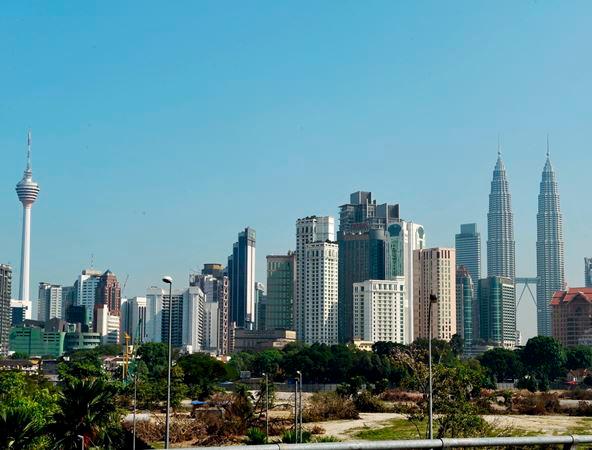PETALING JAYA: The Socio-Economic Research Centre (SERC) has warned of deeper economic scarring effects in the third quarter of 2021 as the shape of economic recovery depends critically on the second half-year performance, especially in the third quarter from July to September, which holds the key to a gradual resumption of economic and business activities as the nation starts to reopen more economic and social sectors.
SERC executive director Lee Heng Guie said while the increasing level of vaccinations will support the normalcy of activities, the virus risk still lurks hence continued pandemic mitigation and surveillance are a must to ensure a sustained revival in economic and business conditions.
“A slew of key economic data namely, exports, industrial output, wholesale and retail sales as well as banks’ loan demand for the month of July and August has generally shown either a sharp pull back in growth or reverted to a decline in consumer spending, reflecting the scarring economic effects from the MCO 3.0 restricted containment measures,” Lee told reporters at the SERC Quarterly Economy Tracker (July-September 2021) virtual briefing today.
“The uptick in unemployment at 4.8% in July also weighed on consumer sentiment. Indications are that overall economic output as measured by the GDP would be subdued or may decline in the third quarter of 2021 before recovering to decent positive growth in the fourth quarter.“
He said after growing by an average annual growth of 7.1% year-on-year (y-o-y) in H1’22, the uneven recovery was tempered by renewed virus outbreaks, forcing the reimplementation of restricted lockdown beginning in mid-May as well as Phase 1 of the National Recovery Plan in early June, resulting in demand curtailment and supply disruptions.
Inflation, as measured by the Consumer Price Index eased further to a five-month low of 2% y-o-y in August from 2.2% in July and 4.2% in the second quarter. The price moderation was broad-based: food, transport, housing, utilities etc. Inflation will stay relative stable in the remaining months of this year, taking the full-year estimate to 2.5% in 2021.
On Budget 2022, Lee said policymakers must figure out ways to fix a shattered economy, rebuild from the damage of the pandemic to become more resilient, and to safeguard it against the next catastrophe.
“The Budget 2022 marks the second year of the 12th Malaysia Plan (12MP). Malaysia output growth has been slow in the past two years... this year the potential output growth for Malaysia will be between 3% to 4%. Our forecast for the 12MP growth will reach the lower end of the target at around 4.5% to 5%,“ he said.
He said the immediate priority of Budget 2022 was to craft a swift economic recovery plan to generate growth, enhance economic resilience, revitalise private investment, create jobs, and reskilling and upskilling of manpower.
“We are keeping our full-year 2021’s GDP growth estimate of 4% amid considerable uncertainties. SERC forecasts the total allocation for Budget 2022 to be RM310 billion, RM60 billion for development expenditure, and RM18 bilion for special Covid-19 fund.
“We estimate an overall budget deficit between -5.5% to -6% of the GDP in 2022. The federal government’s debt ceiling will be raised to 65% of the GDP from 60% to allow fiscal space to meet contingency expenditure to support a firmer recovery. Fiscal expenditure and actions should be nested within a credible medium-term fiscal stability framework to ensure that fiscal deficit and debt remains sustainable.”
Lee added that Bank Negara Malaysia is expected to keep the Overnight Policy Rate at 1.75% until mid-2022 to support a firmer revival in domestic demand.
“The continued low interest rate complements the targeted fiscal support to secure a sustainable recovery path. The overall economic growth and inflation outlook as well as financial stability risk will be carefully assessed in a balancing act to time the starting of interest rates normalisation.
“The uncertainty of monetary path in some advanced economies and potential induced financial volatility in the financial and foreign exchange markets will also be one of the key aspects under the central bank’s monetary management.“
He said the hardest-hit business sectors by the Covid-19 crisis such as tourism sector and retail sector should receive continuous targeted assistance from the government until they are fully recover to prepandemic level.
“In our proposal to the government, we have a list of comprehensive (suggested assistance) for the tourism industry, for example, we asked for further extension for some tourism tax or service tax and to give exemption on import duty on purchasing of imported equipment for theme park.
“We also asked the government to increase personal tax relief to RM2,000 from RM1,000 when people spend in local tourism businesses whether it be hotels, retail shops, and (restaurants). Government should focus on assisting industries that take longer time to fully recover,“ Lee said.














